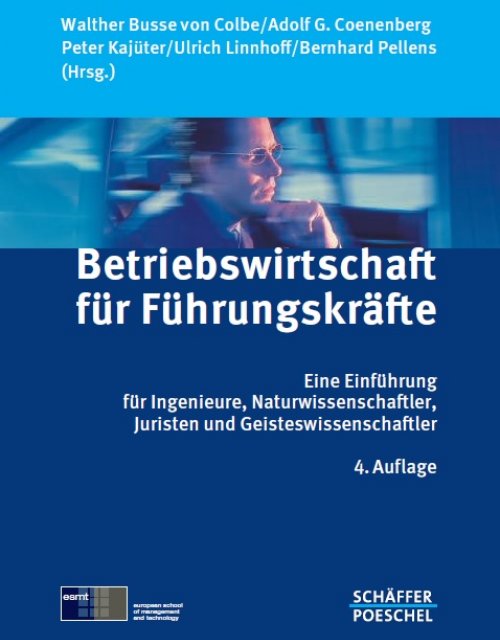Publication records
Subject(s)
Human resources management/organizational behavior
Keyword(s)
coaching, psychological safety, leadership development
Volume
7–8
Journal Pages
56–57
Subject(s)
Human resources management/organizational behavior
Keyword(s)
differences, leadership, Russia, European Union
Subject(s)
Finance, accounting and corporate governance
Keyword(s)
bank lending channel, loan supply, consumer lending, credit rationing, relationships
JEL Code(s)
G01, G21, F34
This paper examines the broader effects of the U.S. financial crisis on global lending to retail
customers. In particular we examine retail bank lending in Germany using a unique dataset of
German savings banks during the period 2006 through 2008 for which we have the universe of
loan applications and loans granted. Our experimental setting allows us to distinguish between
savings banks affected by the U.S. financial crisis through their holdings in Landesbanken with
substantial subprime exposure and unaffected savings banks. The data enable us to distinguish
between demand and supply side effects of bank lending and find that the U.S. financial crisis
induced a contraction in the supply of retail lending in Germany. While demand for loans goes
down, it is not substantially different for the affected and non-affected banks. More importantly,
we find evidence of a significant supply side effect in that the affected banks reject substantially
more loan applications than non-affected banks. This result is particularly strong for smaller and
more liquidity-constrained banks as well as for mortgage as compared to consumer loans. We
also find that bank-depositor relationships help mitigate these supply side effects.
With permission of Elsevier
Volume
100
Journal Pages
556–578
Subject(s)
Marketing
Keyword(s)
return on marketing
Volume
28
Journal Pages
8–12
Subject(s)
Finance, accounting and corporate governance
Keyword(s)
managerial accounting, cost center accounting, contribution margins
Subject(s)
Strategy and general management
Keyword(s)
marketing strategy, technology management, corporate entrepreneurship, from products to services, innovation, new business, new products and services
Subject(s)
Technology, R&D management
Keyword(s)
Patent system, patent examination, State Intellectual Property Office China, duration analysis
The number of patent applications filed at the Chinese State Intellectual Property Office SIPO grew tremendously over the last decades and the SIPO has become the world's third largest patent office by 2009. In this paper, we provide an overview of the institutional background of patent examination in China. Moreover, we empirically analyze the determinants of the grant lags applicants have to expect at the SIPO. The multivariate duration analysis is based on the population of 443,533 patent applications filed at the SIPO between 1990 and 2002. The average grant lag is 4.71 years with considerable variation across 30 different technology areas. Interestingly, we find that Chinese applicants are able to achieve faster patent grants than their non-Chinese counterparts (even after controlling for various other determinants of grant lags). This might be an indication of a differential treatment of Chinese applicants which would be in violation of Art. 3 (National Treatment) and Art. 4 (Most-favored Nation Treatment) of TRIPS that has been signed by China in 2001.
View all ESMT Working Papers in the ESMT Working Paper Series here. ESMT Working Papers are also available via SSRN, RePEc, EconStor, and the German National Library (DNB).
Pages
39
ISSN (Print)
1866–3494
Subject(s)
Ethics and social responsibility
Keyword(s)
business ethics, negotiation, cross-cultural negotiation, ethics in negotiation
The case describes the joint venture negotiation between Mr. Hartmut Holgebretsen, vice president of sales at Euroland Motors, in the English-speaking country of Norland, and Mr. Wu Chang, deputy president at Munchao Motors Import (MMI) in Munchao. It serves as information for a negotiation exercise. The negotiation takes place after the agreement on an initial letter of intent. However, MMI wanted to reopen a few issues before signing a final contract on the import of gas and diesel engines. The case contains “General information” that is available to both negotiation parties. In separate case supplements, Supplement (A): “Negotiation brief for Euroland Motors” and Supplement (B): “Negotiation brief for MMI,” the two parties receive confidential information that is exclusively for them and should not be made available to the other party before the negotiation exercise. The case combines three levels of discussion: a) business issues, b) cross-cultural issues, and c) ethical issues (especially “dirty” negotiation tricks, intellectual property rights, confidential information, and corruption).
The case seems to be most effective and popular when used in executive education with culturally diverse groups of managers who have already gained personal experiences in intercultural negotiations. The case can be used to discuss/introduce topics such as: business ethics in general, business ethics in intercultural/cross-cultural negotiation in particular, mechanics of negotiation, increasing the pie in a negotiation, intercultural/cross-cultural management, and B2B sales of technological products.
| buy now | buy now | buy now |
Subject(s)
Strategy and general management
Keyword(s)
Accounting, finance, capital budgeting, M&A, value based management, controlling
Managerwissen für Nicht-BWLer. Praxisnah vermitteln die Autoren die zentralen BWL-Kenntnisse: von den Instrumenten der strategischen, operativen und finanzwirtschaftlichen Unternehmenssteuerung über die Rechnungslegung bis zur Ausrichtung auf dem Markt und im Wettbewerb. Neu in der 4. Auflage: Beitrag zu Führung in Veränderungsprozessen. Übungen überprüfen das Wissen. Aktuell und leicht verständlich.
Volume
4th ed.,
Pages
631
ISBN
978–3791030876
